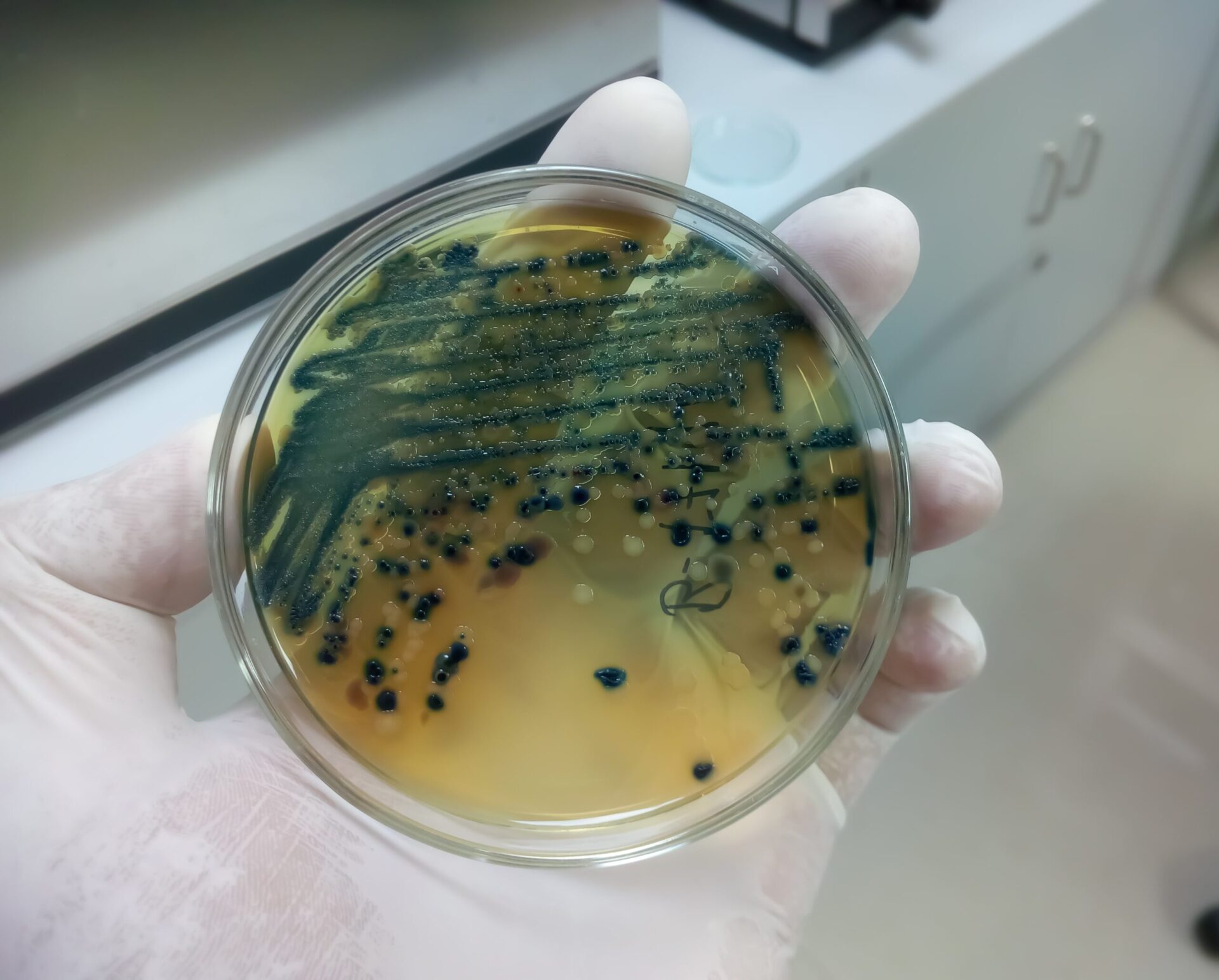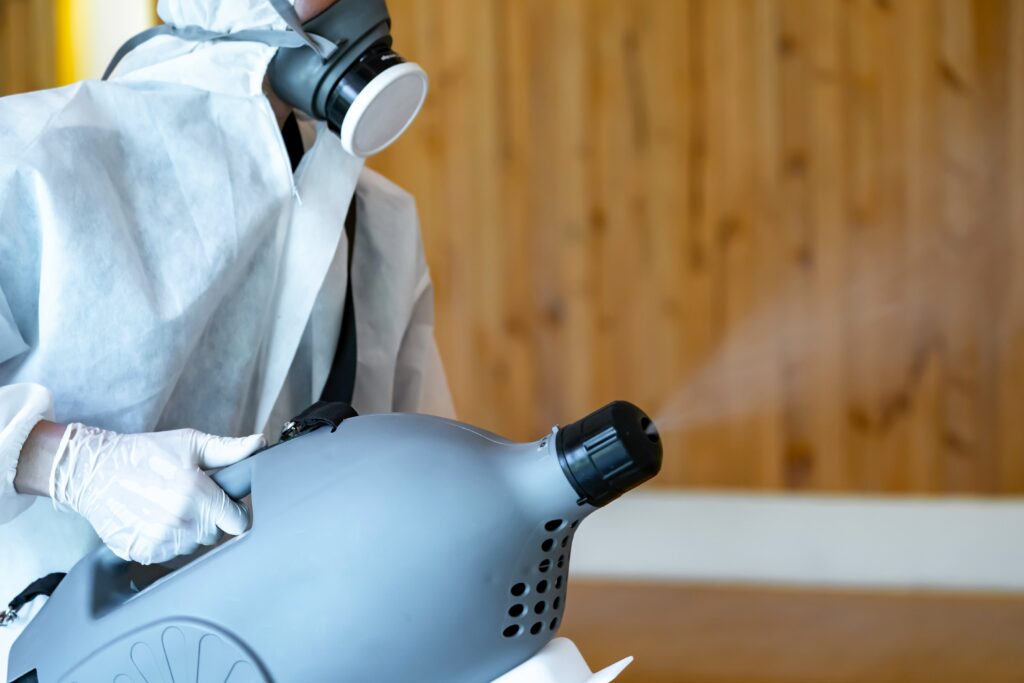Mould spores are microscopic particles released by mould to reproduce and spread. These spores are present everywhere, both indoors and outdoors, and can easily infiltrate homes and workplaces. When airborne, they can be inhaled, potentially causing various health issues. Addressing mould spores through effective air treatment is essential for maintaining a safe and healthy environment. In this blog, we’ll explore what mould spores are, their effects on health, and how air purification services can help mitigate their impact.

What Are Mould Spores?
Mould spores are the reproductive units of mould fungi, designed to disperse and colonize new environments. These spores are resilient, capable of surviving extreme conditions, and remain dormant until they find suitable conditions to grow, such as moisture and organic material. Mould spore air treatment plays a crucial role in managing these spores effectively. Common mould types include:
- Aspergillus: Often found indoors on dust and building materials.
- Cladosporium: Common in damp areas like bathrooms and basements.
- Stachybotrys (Black Mould): Typically found on water-damaged materials and associated with severe health risks.
How Do Mould Spores Affect Health?
While not all mould spores are harmful, exposure to certain types can lead to health issues. Individuals with allergies, asthma, or weakened immune systems are particularly susceptible. Common health effects include:
- Allergic Reactions:
- Sneezing, runny nose, and itchy eyes.
- Skin rashes or hives.
- Respiratory Issues:
- Wheezing, coughing, or shortness of breath.
- Aggravation of asthma symptoms.
- Toxic Reactions:
- Prolonged exposure to toxic mould, such as black mould, may lead to neurological symptoms, fatigue, and memory issues.
Why Is Air Treatment Important for Mould Spores?
Mould spores are lightweight and easily become airborne. Without proper air treatment, they can circulate within enclosed spaces, increasing the risk of inhalation and exposure. Air treatment helps in several ways:
1. Eliminating Airborne Spores
High-quality air purifiers with HEPA filters can trap mould spores, preventing them from being inhaled.
2. Maintaining Indoor Air Quality
Regular air purification reduces the overall concentration of pollutants, improving air quality and reducing health risks.
3. Preventing Mould Growth
By controlling humidity levels and removing spores, air treatment can prevent mould colonies from forming in the first place.
Air Purification Services: The Solution to Mould Spore Problems
Professional air purification services offer a comprehensive approach to managing mould spores. Here’s how they can help:
1. Air Quality Assessment
Experts begin by assessing indoor air quality to determine the level of mould spore contamination. This step involves:
- Identifying mould-prone areas.
- Measuring humidity levels.
- Testing for specific mould types.
2. Advanced Air Filtration Systems
Professional-grade air purification systems use advanced technologies like:
- HEPA Filters: Captures 99.97% of particles, including mould spores.
- UV-C Light: Kills mould spores and other microorganisms.
- Activated Carbon Filters: Absorbs odours and VOCs (volatile organic compounds).
3. Humidity Control
Maintaining indoor humidity between 30% and 50% is crucial. Air purification services often include dehumidifiers to reduce moisture, making the environment less hospitable for mould.
4. Regular Maintenance
Routine maintenance of air purification systems ensures their effectiveness. Services include:
- Cleaning or replacing filters.
- Inspecting for new mould growth.
Tips for Managing Mould Spores at Home
While professional services are highly effective, there are several steps you can take to minimize mould spores at home:
- Keep Humidity Levels Low
- Use dehumidifiers and exhaust fans in high-moisture areas like bathrooms and kitchens.
- Repair leaks and dry wet areas promptly.
- Improve Ventilation
- Open windows when possible to improve air circulation.
- Use air purifiers with HEPA filters for enclosed spaces.
- Regular Cleaning
- Clean and disinfect surfaces prone to mould growth, such as bathroom tiles and window sills.
- Vacuum carpets and upholstery with HEPA-equipped cleaners.
- Monitor Indoor Plants
- Overwatering plants can create conditions conducive to mould growth.
- Use mould-resistant soil and clean plant containers regularly.
- Inspect HVAC Systems
- Ensure that heating, ventilation, and air conditioning systems are clean and functioning correctly.
Conclusion
Mould spores are an unavoidable part of our environment, but their presence indoors can pose significant health risks. Effective air treatment and purification are essential for controlling these spores, improving air quality, and ensuring a safe living or working environment. By combining professional air purification services with proactive home management strategies, you can significantly reduce the impact of mould spores on your health and wellbeing.Investing in air purification services is not just about cleaner air; it’s about protecting your health and enhancing your quality of life. Take the first step toward a healthier indoor environment today.


